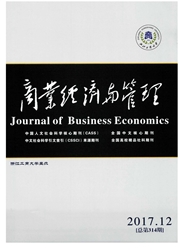

 中文摘要:
中文摘要:
随着我国经济结构的转型,农民工的就业流动行为也发生变化。基于珠三角地区的调查数据,对农民工就业流动行为及影响其就业流动的因素进行实证分析。研究表明,年龄、婚姻状况和日平均工作时间对于农民工就业流动有显著性影响。年龄越大,就业流动意愿越低;相对于未婚农民工来说,已婚农民工进行就业流动的可能性更小;行业、工作环境、受教育程度、性别、企业内人际关系等与农民工日常工作和生活息息相关的内容并不是影响农民工就业流动的主要因素。总之,从调查的结果看,影响农民工就业流动因素呈现多元化趋势。
 英文摘要:
英文摘要:
With the transformation of China's economic structure, the occupational mobility behavior of migrant workers is changing. Based on the survey data of the Pearl River Delta region, this paper gives an empirical analysis of occupational mobility behavior of migrant workers and its influencing factors. Studies have shown that age, marital status and the average daily working hours have significant impacts on the occupational mobility of migrant workers. The older the individual is, the lower the aspirations of the occupational mobility, and compare to the unmarried migrant workers, the married shows less possibility of occupational mobility. However, those factors closely related to migrant worksers daily life and work, such as industry, work environment, level of education, gender, and enterprise interpersonal relationships are not the main factors which affect the occupational mobility of migrant workers. In short, from the results of the survey, reasons of migrant workers" occupational mobility are becomin~ increasingly diversified.
 同期刊论文项目
同期刊论文项目
 同项目期刊论文
同项目期刊论文
 期刊信息
期刊信息
